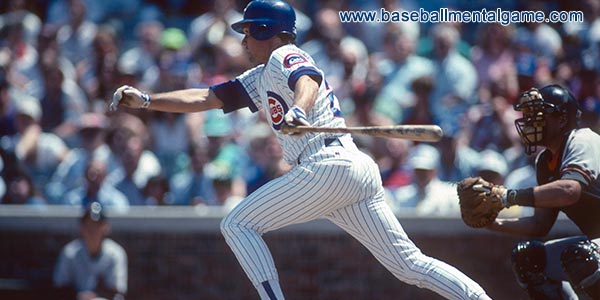
Learning to Cope With Covid-19 Delays
COVID-19 has posed a challenge for all people throughout the world. People from all walks of life are faced with adversity created by the coronavirus pandemic.
The baseball world is also in a state of disarray and it’s not just professional players dealing with tough times.
Student-athletes are faced with a unique set of circumstances. Student-athletes are required to complete their coursework through distance learning which can be monotonous and stressful.
In addition, student-athletes have the added pressure of maintaining their preparedness for the potential start of the season.
Student-athletes need to ask some hard questions at this time about their commitment to athletics.
So, here we go…With your baseball season hanging in the balance and social distancing in effect, what are you doing to stay in shape and be prepared for the moment you are back on the field?
Many ball players have taken it upon themselves to stay in physical shape by going for a run through the neighborhood, hitting off a tee and lifting weights.
Unfortunately, physical training is limited to what equipment you have.
While staying in shape physically has its challenges, mental training is available to you at all times of the day.
Mental training will keep you prepared and mentally sharp for when the season reconvenes. Now is an opportune time to take advantage of your time and fully delve into mental training.
One of the most effective strategies to engage your mind and activate your body is visualization.
Visualization is mentally experiencing an athletic event in your mind through the use of images in conjunction with your other senses.
When you visualize you are both the director and the actor. In other words, you are consciously directing the images and the outcome…And you are the person performing the actions in the visualization experience.
For example, if you are a closing pitcher, you can visualize striking out the final batter with the bases loaded in an away game playing your long-time rivals. Prior to the visualization, you want to create a script in your head to provide direction while visualizing the event.
In addition to creating the scene, you want to live the scene in your mind…what you would feel, see, hear, smell, taste and think.
Visualizing positive outcomes and the feelings associated with those outcomes keeps your mind and body sharp. Visualization is a tool being used by some of the players on the New York Mets roster.
Even though COVID-19 has interrupted the start of the MLB season, New York Mets players J.D. Davis and Dominic Smith are keeping their heads in the game with visualization.
Davis commented in an interview about the uncertainty of the season and the need to adapt despite the current circumstances.
DAVIS: “It is a little bit weird to not really have a date or at least a deadline to kind of work yourself up to get ready… There’s not much to do, it’s very limited. We’ve got to adapt.”
Smith has been making good use of his time engaging his mind and body by combining swing mechanics with visualization.
SMITH: “I take some dry hacks, a lot of visualization…You get to really feel your body, your movements, and stuff like that.”
Visualization is a great tool to keep your mind engaged and prepared.
Tips for Effective Visualization
Be Patient–It can be difficult to hold images in your mind. Stay patient, you will get better with more practice.
Be Vivid–Add as many details as you can to provide a “real feel” to your visualization sessions.
Be Positive–Make sure you “see” yourself producing positive outcomes.
Visualization will keep you in baseball shape mentally and physically. You will be ready once Covid-19 passes.
Related Sports Psychology Articles
- Adjusting Goals During a Disrupted Baseball Season
- How to Develop a Ball Player Championship Mindset
- How to Manage Thoughts and Emotions in Meaningful Games
*Subscribe to The Sports Psychology Podcast on iTunes
*Subscribe to The Sports Psychology Podcast on Spotify
Get The Mental Edge for Baseball and Softball
If you have trouble taking your practice game to competition and under perform in games, your mental game might be the culprit! Baseball and softball players contact me everyday wanting to know why they become scared, anxious, afraid to make mistakes, and lack trust in their skills during games…
You might have a ton of physical talent and perform great in practice, but if you can’t get the job done when it counts, something is missing and the problem is an inferior mental game–not talent or motivation.
We’ve spent the last six months developing a program to teach you how to improve your mental game in 8 easy-to-apply lessons–the same TOP lessons that I teach to baseball and softball players everyday in my one-on-one mental coaching program!

